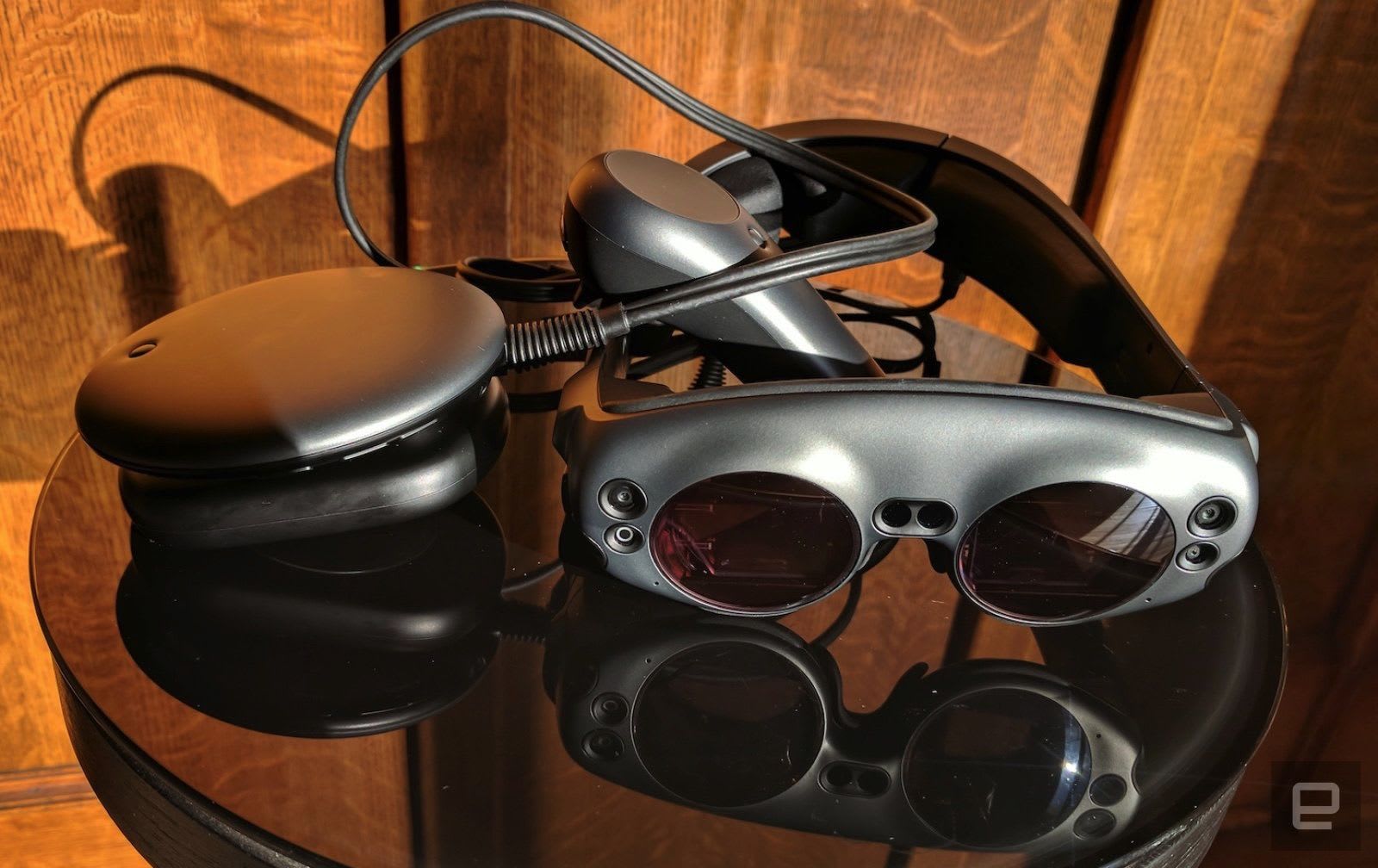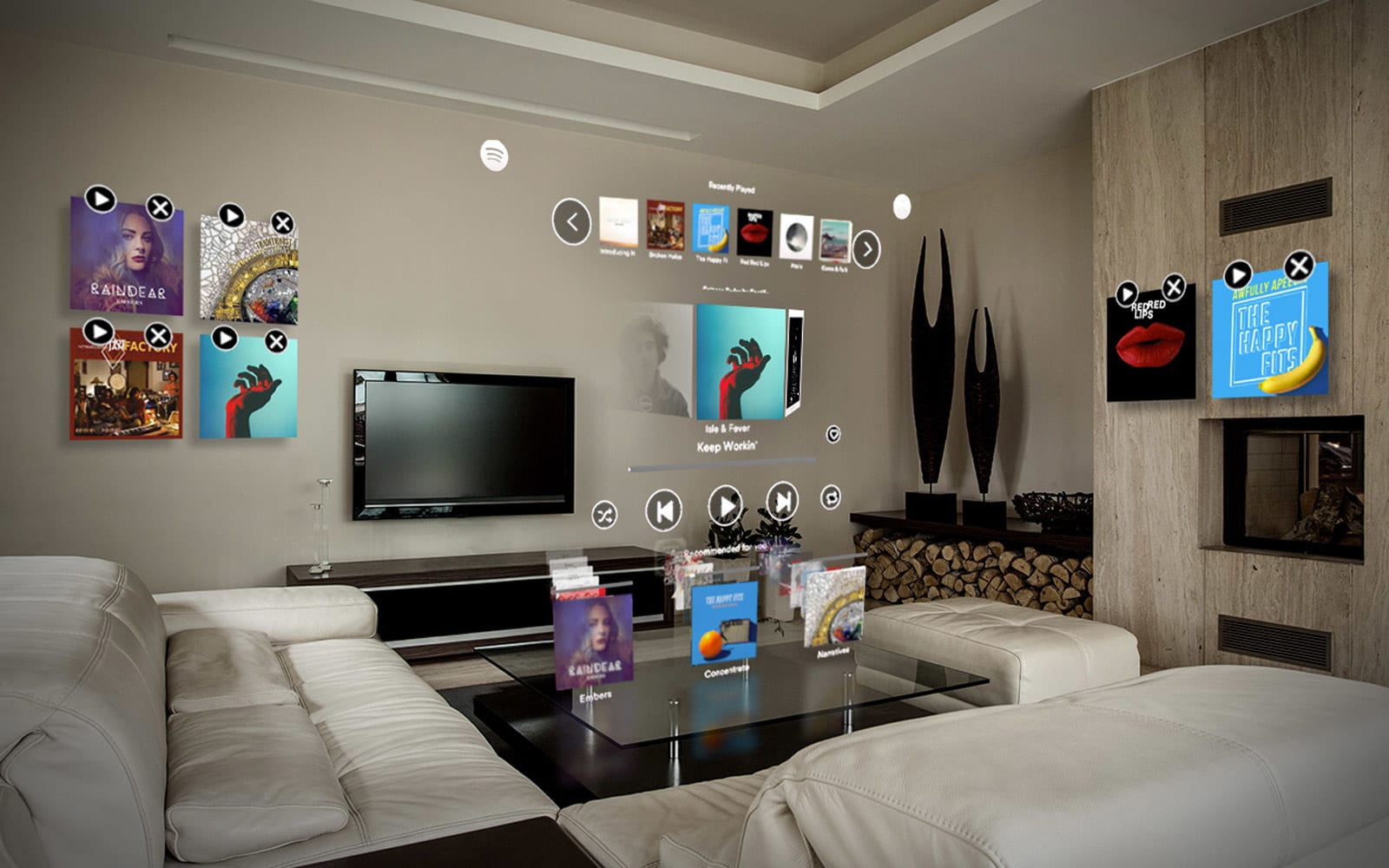Tag Archives: mixed reality
Recommended Reading: The Magic Leap project the world may never see
US court rejects Magic Leap claim that Nreal founder stole mixed-reality secrets
Rony Abovitz confirms Magic Leap’s new funding, will step down as CEO
HoloLens 2 heads to South Korea, Taiwan and more countries
HTC’s Project Proton AR headsets make you look like Ant-Man (and there’s some logic to it)

HTC’s ambitious Project Proton does something very remarkable not for augmented reality technology, but rather for how we perceive AR tech. Project Proton was supposed to form a part of HTC’s announcement at the now-canceled Mobile World Congress. It expands on HTC’s Vive Cosmos headset, which offers the ability to work with Mixed Reality by using cameras on the headset that capture the outside world for the eyes on the inside. Here’s the problem with headsets though (and I’ve said this before)… they look horrible.
It isn’t the fact that they just look horrible, AR and VR headsets are literally a visual disconnect from the world. You know how you hesitate to talk to someone who has headphones on? Imagine that hesitation with someone who has a black toaster strapped to their face as they interact with virtual objects, looking almost like demented zombies in the real world. Face to face conversations become very difficult when there isn’t a face to look at, but HTC’s Project Proton could solve that. The mixed reality headset concept actually borrows from eyewear, and is designed to look like a pair of skiing goggles (or a popular Marvel superhero’s mask) rather than a black box that blocks 70% of your face. The design is split into two, with tinted pieces of glass covering the headset’s two ‘eyes’. Just like when you’re talking to people with heavily tinted sunglasses, you don’t see their eyes, but it’s still easy to have a conversation with them because the sunglasses are structured in a way that allows your brain to put two and two together to perceive someone’s face. By using two tinted eyepieces styled in a way to look like voguish glares, HTC’s hoping to make Mixed Reality headsets that still keep you grounded in reality… even more so by shaping how people around you perceive you.
The company hasn’t officially released any information on the Proton headsets, but I assume a press-release with specs, a price-tag, and launch date should be underway.
Designer: HTC




OPPO’s version of the Hololens shows that the company is serious about a mixed-reality future

Deciding to be more than a smartphone company, OPPO unveiled its expanded vision of the future at its Inno Day 2019 conference. Designed to be OPPO’s answer to the Microsoft Hololens, the mixed reality headset comes with a similar design with the inclusion of a forehead-rest, and runs OPPO’s Glass OS.
The company hasn’t revealed any tech specs or even its tentative pricing yet, but OPPO is gearing for a 2020 launch. The Glasses, however, come with features that put it at par with the Hololens. They include support for 3D sound, in order to offer a truly immersive AR experience, while sporting as many as 4 cameras (two fisheye, one HD, and one Time-of-Flight) to accurately capture the world around you in visual as well as physical detail to help you position, track, and interact with objects in your view. And here’s the most promising bit. The glasses even come with 5G support, for a seamless mixed reality experience!
Designer: OPPO




Magic Leap shifts focus to business with an updated AR headset
 Magic Leap's augmented reality headset reportedly hasn't sold well so far, but the company might have a way to turn its fortunes around: pitch the device as a business tool. It's launching an Enterprise Suite that includes a Magic Leap 1 headset (an...
Magic Leap's augmented reality headset reportedly hasn't sold well so far, but the company might have a way to turn its fortunes around: pitch the device as a business tool. It's launching an Enterprise Suite that includes a Magic Leap 1 headset (an...
Magic Leap reportedly only sold 6,000 AR headsets in six months
 After years of hype, it looks like reality is starting to catch up with Magic Leap. According to a report from The Information, the augmented reality startup and Silicon Valley darling only sold approximately 6,000 units of its $2,300 Magic Leap One...
After years of hype, it looks like reality is starting to catch up with Magic Leap. According to a report from The Information, the augmented reality startup and Silicon Valley darling only sold approximately 6,000 units of its $2,300 Magic Leap One...
Spotify’s Magic Leap app lets you virtually pin music on the wall
 By this point, most people have used Spotify on almost every platform where it's available and there's not a lot about the experience that's surprising. So it's interesting then to see how, with the help of augmented reality startup Magic Leap, Spoti...
By this point, most people have used Spotify on almost every platform where it's available and there's not a lot about the experience that's surprising. So it's interesting then to see how, with the help of augmented reality startup Magic Leap, Spoti...